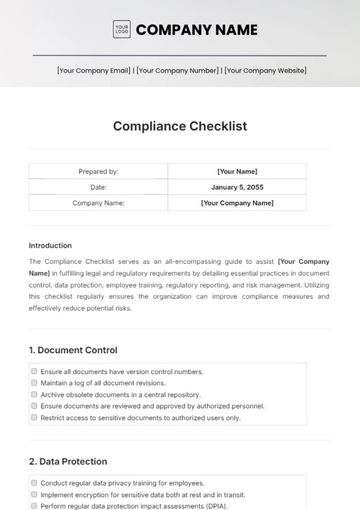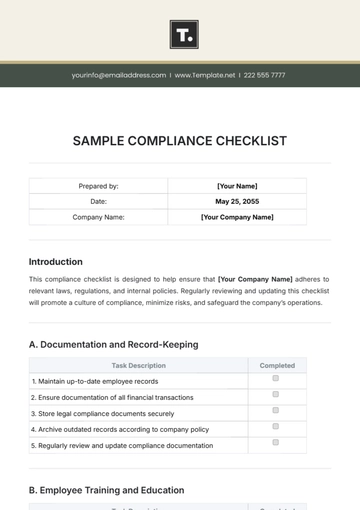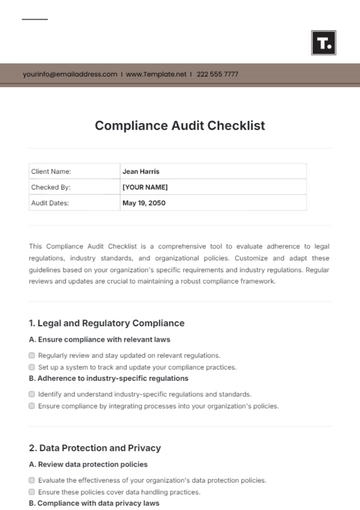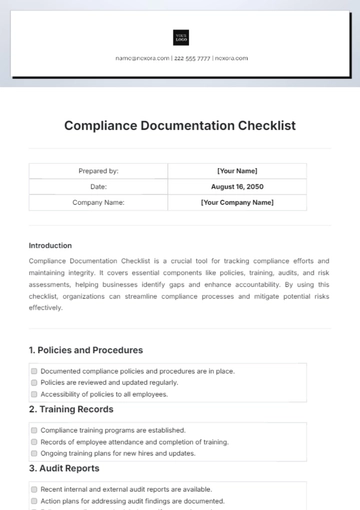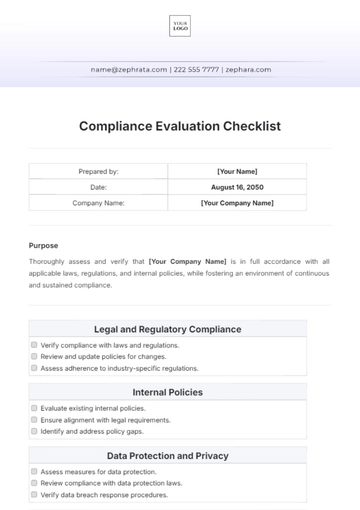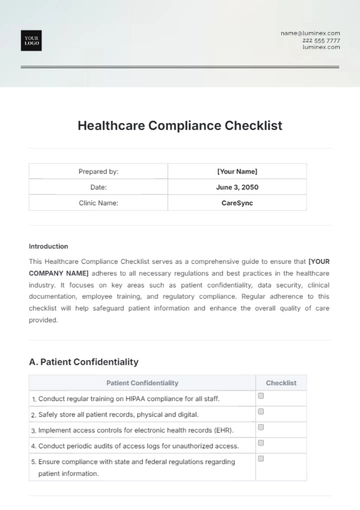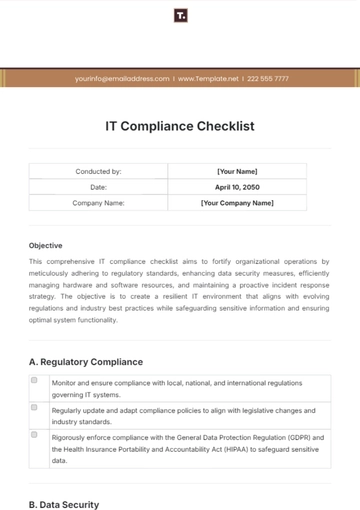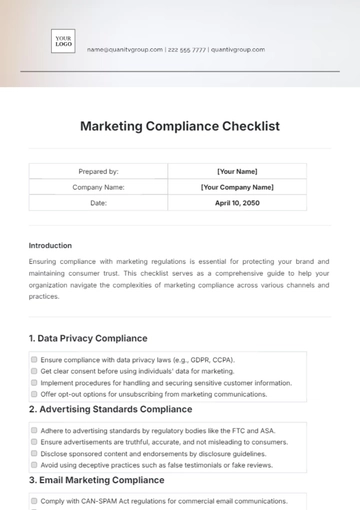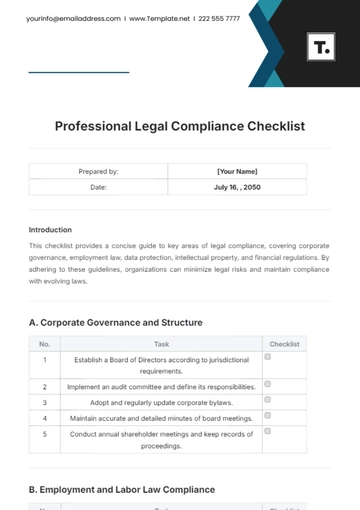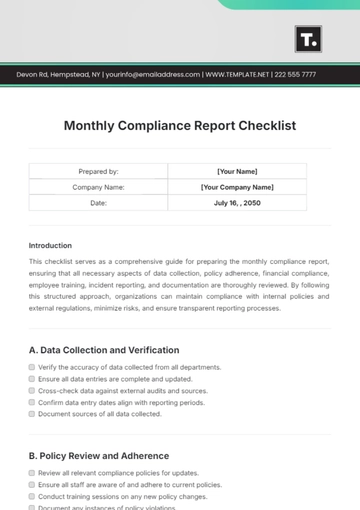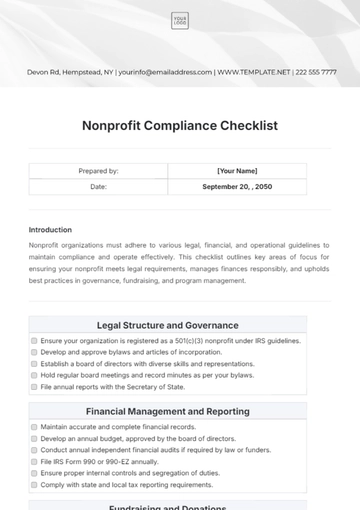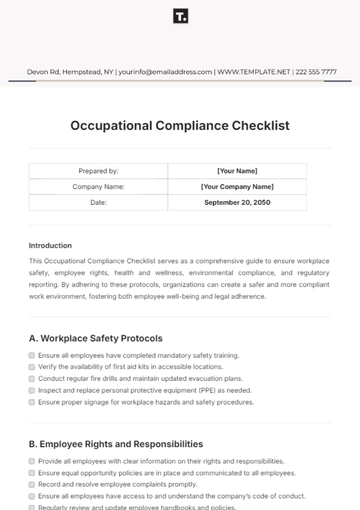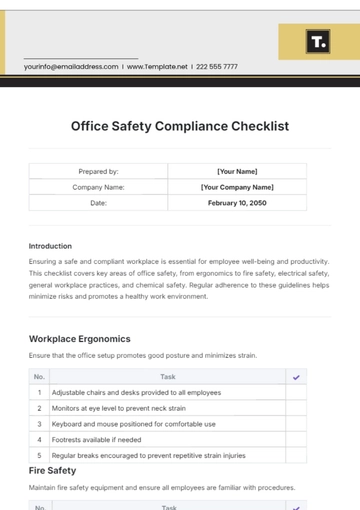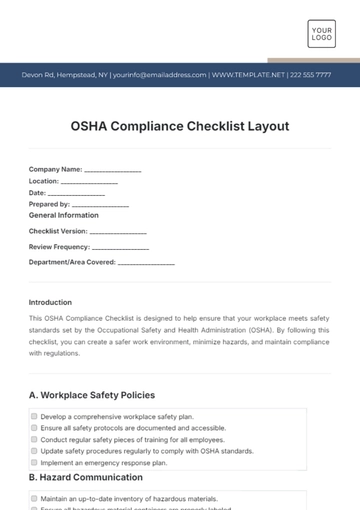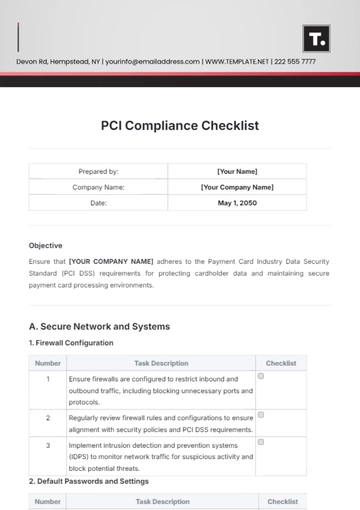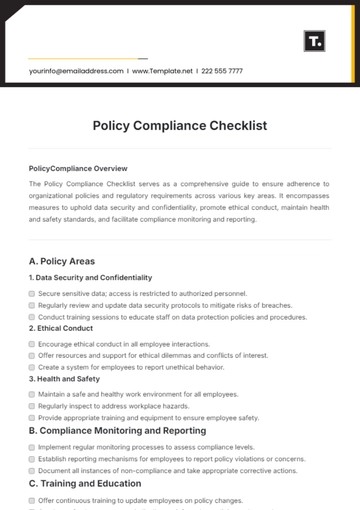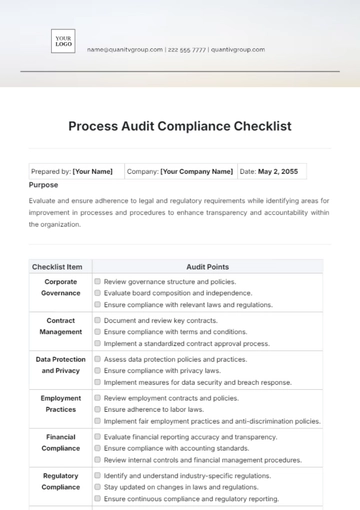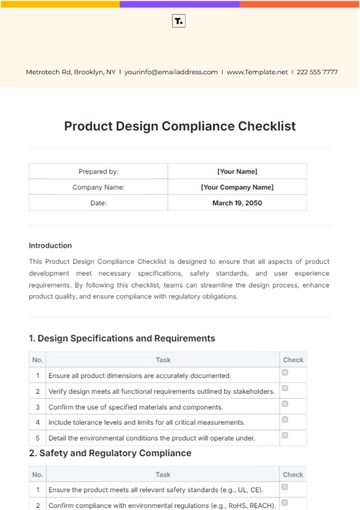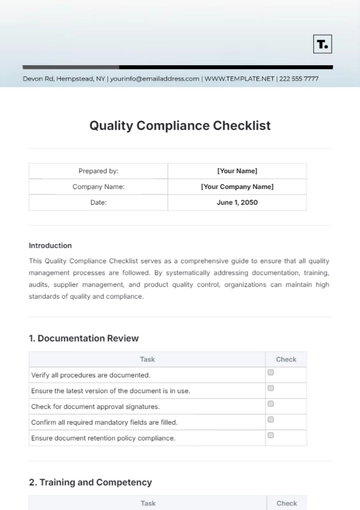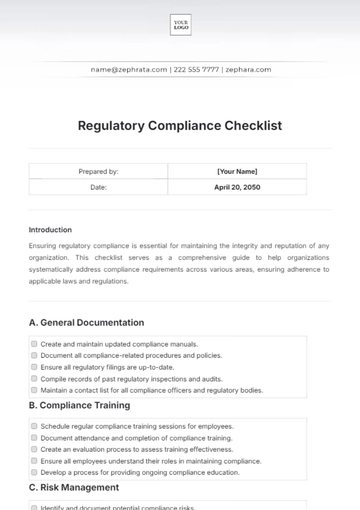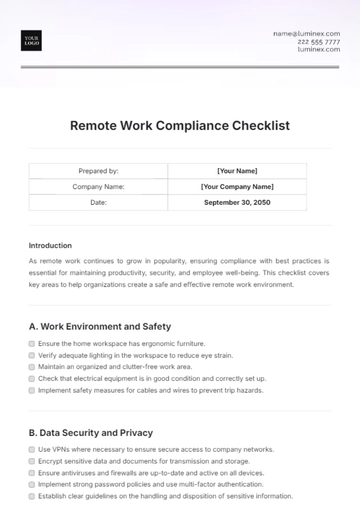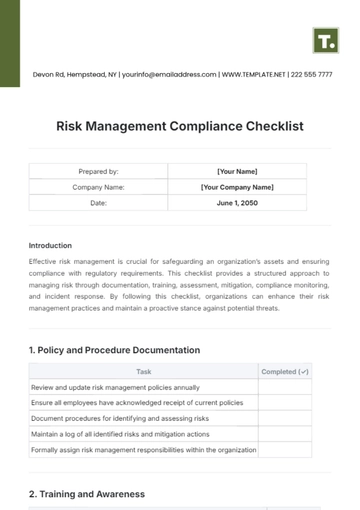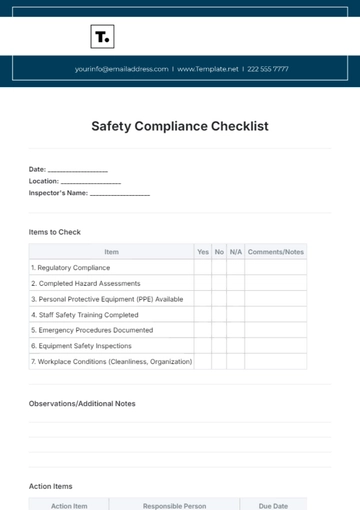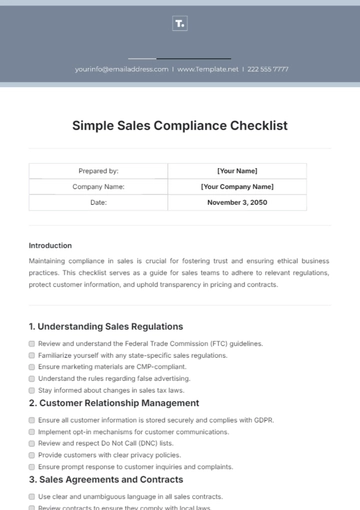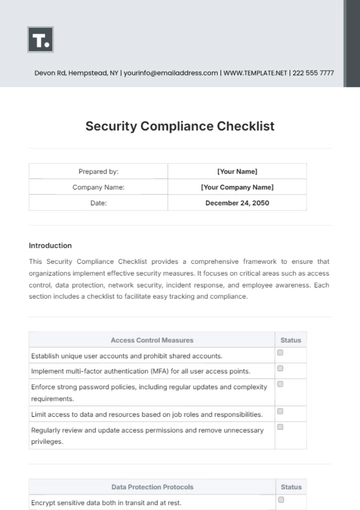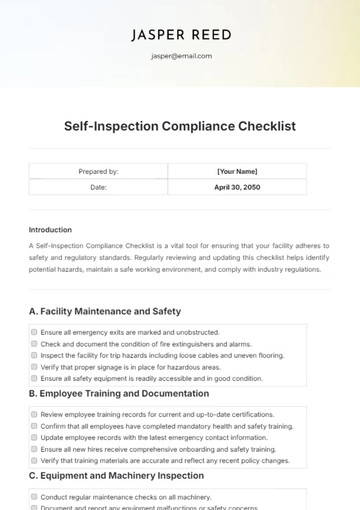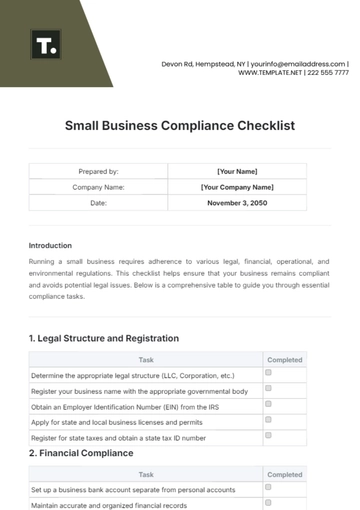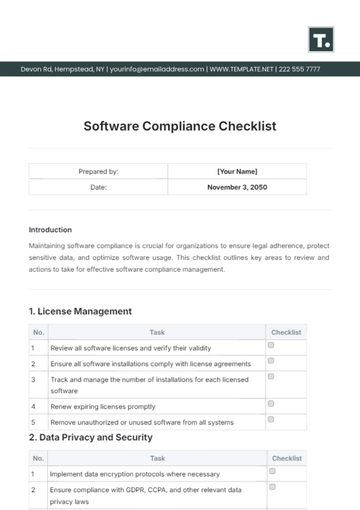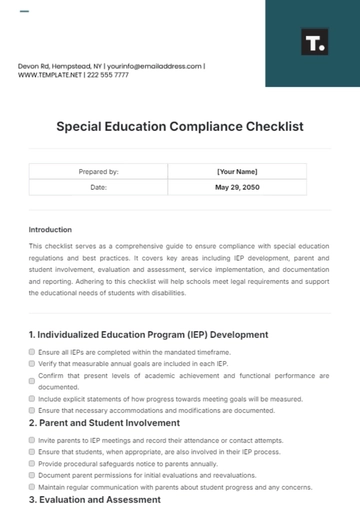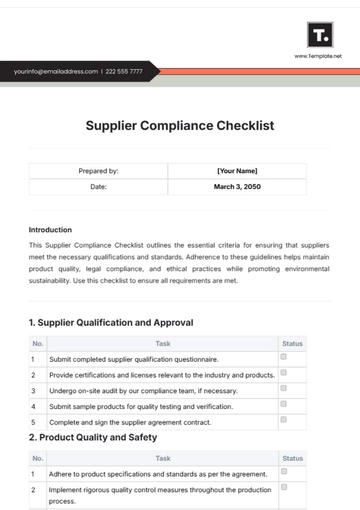Free Site Equipment Checklist
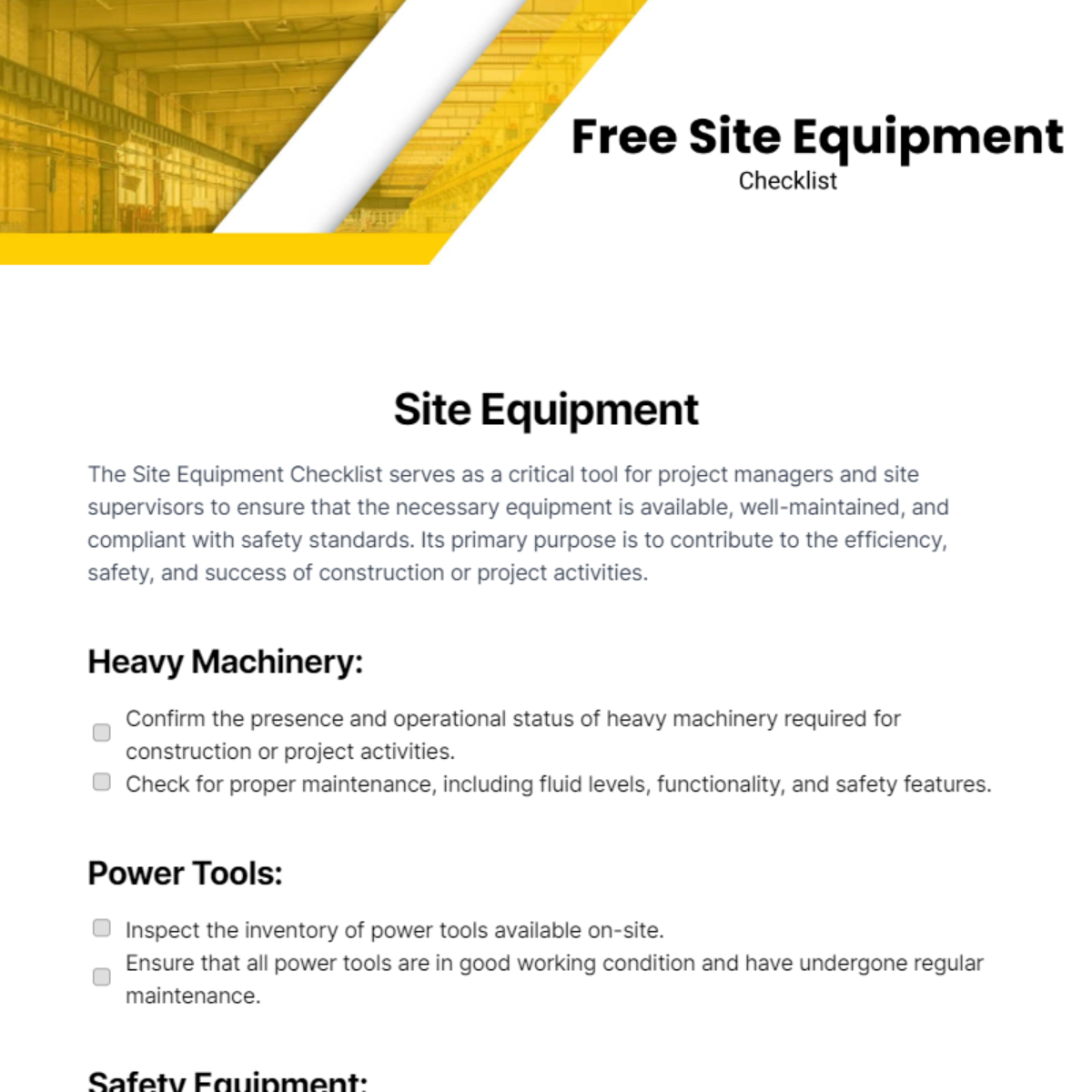
The Site Equipment Checklist serves as a critical tool for project managers and site supervisors to ensure that the necessary equipment is available, well-maintained, and compliant with safety standards. Its primary purpose is to contribute to the efficiency, safety, and success of construction or project activities.
Heavy Machinery:
Confirm the presence and operational status of heavy machinery required for construction or project activities.
Check for proper maintenance, including fluid levels, functionality, and safety features.
Power Tools:
Inspect the inventory of power tools available on-site.
Ensure that all power tools are in good working condition and have undergone regular maintenance.
Safety Equipment:
Verify the availability and condition of safety equipment, including helmets, gloves, safety glasses, and harnesses.
Confirm that safety equipment complies with industry standards and regulations.
Communication Devices:
Check the functionality of communication devices such as walkie-talkies and radios.
Ensure that communication devices are adequately charged and accessible to all relevant personnel.
Temporary Structures:
Inspect temporary structures, including scaffolding, fencing, and barricades.
Confirm that these structures meet safety standards and are securely installed.
Material Handling Equipment:
Assess the availability and condition of material handling equipment, such as forklifts and cranes.
Verify that operators are trained and certified to use the equipment safely.
Generators and Power Sources:
Confirm the availability and readiness of generators and alternative power sources.
Check fuel levels and ensure proper functioning to avoid disruptions in power supply.
Surveying Instruments:
Inspect surveying instruments, including theodolites and laser levels.
Confirm calibration and accuracy to maintain precision in construction measurements.
Lighting Equipment:
Check the condition and placement of lighting equipment, especially for nighttime or low-light operations.
Ensure that lighting meets safety standards and provides adequate visibility.
Waste Management Tools:
Inspect tools and equipment for waste management, such as dumpsters and disposal containers.
Confirm proper waste segregation practices and disposal protocols.
- 100% Customizable, free editor
- Access 1 Million+ Templates, photo’s & graphics
- Download or share as a template
- Click and replace photos, graphics, text, backgrounds
- Resize, crop, AI write & more
- Access advanced editor
Optimize site equipment management with the Site Equipment Checklist from Template.net. This editable and customizable template, effortlessly tailored with our Ai Editor Tool, ensures a personalized and efficient routine. Elevate your site management experience with this user-friendly checklist, designed for maximum efficiency. Customize effortlessly, ensuring comprehensive equipment checks and successful site operations with ease and precision.
You may also like
- Cleaning Checklist
- Daily Checklist
- Travel Checklist
- Self Care Checklist
- Risk Assessment Checklist
- Onboarding Checklist
- Quality Checklist
- Compliance Checklist
- Audit Checklist
- Registry Checklist
- HR Checklist
- Restaurant Checklist
- Checklist Layout
- Creative Checklist
- Sales Checklist
- Construction Checklist
- Task Checklist
- Professional Checklist
- Hotel Checklist
- Employee Checklist
- Moving Checklist
- Marketing Checklist
- Accounting Checklist
- Camping Checklist
- Packing Checklist
- Real Estate Checklist
- Cleaning Checklist Service
- New Employee Checklist
- Food Checklist
- Home Inspection Checklist
- Advertising Checklist
- Event Checklist
- SEO Checklist
- Assessment Checklist
- Inspection Checklist
- Baby Registry Checklist
- Induction Checklist
- Employee Training Checklist
- Medical Checklist
- Safety Checklist
- Site Checklist
- Job Checklist
- Service Checklist
- Nanny Checklist
- Building Checklist
- Work Checklist
- Office Checklist
- Training Checklist
- Website Checklist
- IT and Software Checklist
- Performance Checklist
- Project Checklist
- Startup Checklist
- Education Checklist
- Home Checklist
- School Checklist
- Maintenance Checklist
- Planning Checklist
- Manager Checklist
- Wedding Checklist
- Vehicle Checklist
- Travel Agency Checklist
- Vehicle Inspection Checklist
- Interior Design Checklist
- Backpacking Checklist
- Business Checklist
- Legal Checklist
- Nursing Home Checklist
- Weekly Checklist
- Recruitment Checklist
- Salon Checklist
- Baby Checklist
- Equipment Checklist
- Trade Show Checklist
- Party Checklist
- Hospital Bag Checklist
- Evaluation Checklist
- Agency Checklist
- First Apartment Checklist
- Hiring Checklist
- Opening Checklist
- Small Business Checklist
- Rental Checklist
- College Dorm Checklist
- New Puppy Checklist
- University Checklist
- Building Maintenance Checklist
- Work From Home Checklist
- Student Checklist
- Application Checklist
